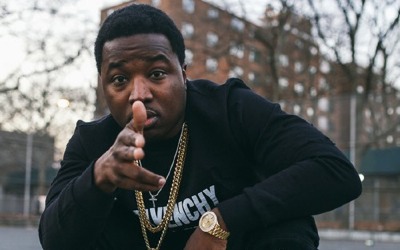When four people were shot at a hip-hop concert at Irving Plaza this past week, a shooting that left one dead, and that we’re now finding out was done by one of the acts, Troy Ave, there was a disturbing reaction in hip-hop. No one wanted to address the issue.
There were cries that this isn’t just a hip-hop problem. There were people bringing up the issues other genres of music have at shows. What was missing, however, was anyone attempting to deal with the elephant in the room – hip-hop concerts have a gun problem.
The reality that guns aren’t just a hip-hop problem is irrelevant to the conversation. They ARE a problem in hip-hop, and we should be attempting to deal with this within hip-hop. We’re long overdue in taking responsibility to curtail gun violence at our shows, and until we admit to ourselves that this is OUR problem, we won’t be in any position to solve it.
Here’s just a sampling of the gun related incidents that have occurred at hip-hop shows since the start of 2015
January 2015: Shots were fired into a crowd at a Kevin Gates show in Lexington, KY.
February 2015: A man was shot, and another person was grazed, following a Nipsey Hussle concert in Sacramento, CA.
February 2015: Gunshots were fired at a T.I., and Young Jeezy, show in Charlotte, NC.
April 2015: A shooting inside the Paramount Theater, formerly the Hippodrome nightclub (Springfield, MA), during a hip-hop concert left three wounded.
April 2015: A man was shot following a Twista and King Louie show in West Des Moines, IA.
August 2015: Two were injured in a shooting outside a J. Cole, and Big Sean concert at the PNC Bank Arts Center in NJ.
August 2015: Two people were killed, and three others seriously wounded, at the after party for Drake’s OVO Fest in Toronto, CA. The year prior there was also a shooting at the same nightclub, after the same festival.
August 2015: A double shooting occurred at the Palace Theater, in Waterbury, CT, after a rap concert.
September 2015: A shooting outside of a Lil’ Durk concert in Philadelphia, PA, left one man dead.
March 2016: YFN Lucci’s own security team fired eight shots into the air during a brawl started by their own artist at a nightclub in Little Rock, AK. Lucci was also seen walking around the club with a gun in the aftermath, as he said someone was shooting outside of the club.
May 2016: Troy Ave shot four people, including himself, killing one, at his show with T.I. at Irving Plaza in NYC.
To put this in perspective, if you Google “rock concert shooting,” by the end of the first page of results you’ll find articles on tips for “shooting,” i.e. photographing, rock concerts.
Guns, are a hotly debated topic, and there are people within hip-hop who will insist that guns are a societal issue. I totally agree with these people. However, just because something is a societal issue, doesn’t mean it isn’t also an issue within hip-hop, and something that we can attempt to address internally.
When discussing the Troy Ave shooting I’ve noticed a lot of hip-hop fans attempting to deflect the issue, and bring up the problems other genres of music have at live events, like the rampant drug use, and people overdosing, at EDM concerts. While drug use is definitely a problem at EDM shows, the difference between the EDM community, and the hip-hop community, is that the EDM community at least recognizes they have a problem, and they’re attempting to do something about it.
In a Fader article from 2014, it was pointed out that after two people died at Electric Zoo 2013, major changes happened in the way the event was run. “Electric Zoo’s organizers implemented a barrage of extra security measures,” the article stated, “drug-sniffing dogs, more plainclothes security offices, background checks for onsite vendors, a two-hour shortening of the length of each day’s show, mandatory viewing of an anti-drug PSA, and amnesty bins in front of the gates where revelers could discard drugs free of punishment.”
What are we doing to curtail gun violence at hip-hop shows? How many people have to be hurt, or killed, before we admit this is a hip-hop problem? Taking a look at the incidents I listed, one can see it isn’t even just a problem based on an artist’s lyrical content. That is, unless you consider J. Cole, and Drake, “thug” rappers.
We can’t bury our heads in the sand on this issue. We have to start doing something about it. Deflecting, calling out other genres on their issues, and saying this isn’t just our problem, is nothing more than enabling the next shooter, and costing the life of another fan who just wanted to see their favorite rapper.

